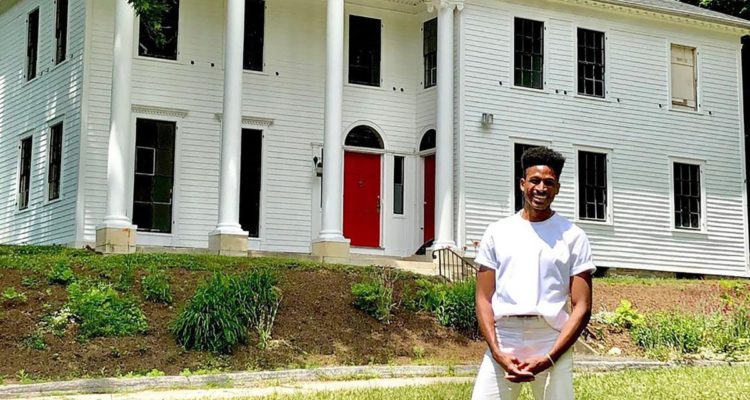Robert Hartwell es un actor de Broadway que ha participado en montajes como Hello, Dolly! y Motown the Musical, por lo que su nombre es bastante conocido en la escena en Nueva York. Hace algunos días, el artista protagonizó una historia bastante peculiar, luego de adquirir una lujosa casa que había sido construida por esclavos a comienzos del siglo XIX.
Él mismo declaró que, luego del surgimiento del movimiento “Black Lives Matter” (Las vidas negras importan), comenzó a buscar una casa construida por esclavos para comprarla.
Hace un mes, Hartwell encontró la residencia ubicada en el distrito de Queens, por lo que decidió contactar al corredor de propiedades.
“En un comienzo, él me dijo que sólo negociarían con una persona que pagara en efectivo, por lo que estaban seguros de descartarme como comprador”, comenzó en redes sociales.
No obstante, el actor reflexionó: “Nunca subestimes a un hombre negro que trabaja duro”.
View this post on InstagramA post shared by robert hartwell (@sirroberttakespics) on
Hartwell declaró que el origen de la residencia era aristocrático, ya que había sido mandada a construir por una de las familias fundadoras de la ciudad.
“Vi la casa la semana pasada y cuando entré supe que ‘estaba en casa’. La residencia fue construida en 1820 para la familia Russell, propietaria de la fábrica de algodón de la ciudad. La esclavitud seguía siendo legal. Cuando el agente me preguntó por qué quería una casa tan grande, dije que era ‘un movimiento generacional”, indicó.
“Sé que esta casa es más grande que yo. Ojalá pudiera haberles dicho a mis antepasados, cuando se estaban rompiendo las espaldas en 1820 para construirla, que 200 años más tarde un hombre negro, homosexual, libre iba a poseerla y llenarla de amor”, agregó.
View this post on InstagramA post shared by robert hartwell (@sirroberttakespics) on
Hay que señalar que el actor también se unió a la campaña, encabezada por celebridades de Estados Unidos, para pagar las fianzas de quienes fueran detenidos en las protestas por la muerte de George Floyd, el pasado 25 de mayo.
Aquel hecho marcó el inicio del movimiento “Black Lives Matter”, con una serie de revueltas sociales en las principales ciudades de Estados Unidos.







 Enviando corrección, espere un momento...
Enviando corrección, espere un momento...





